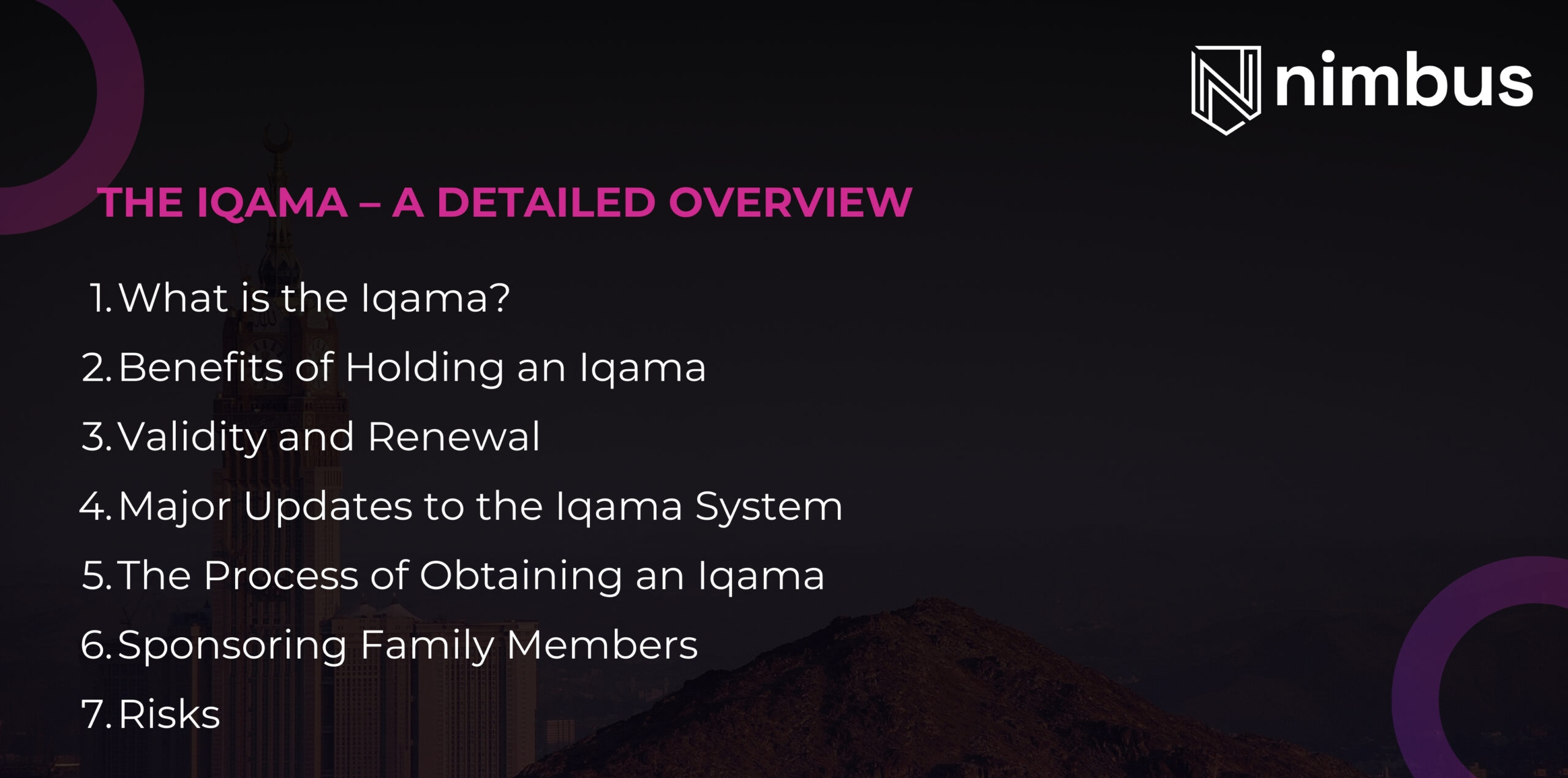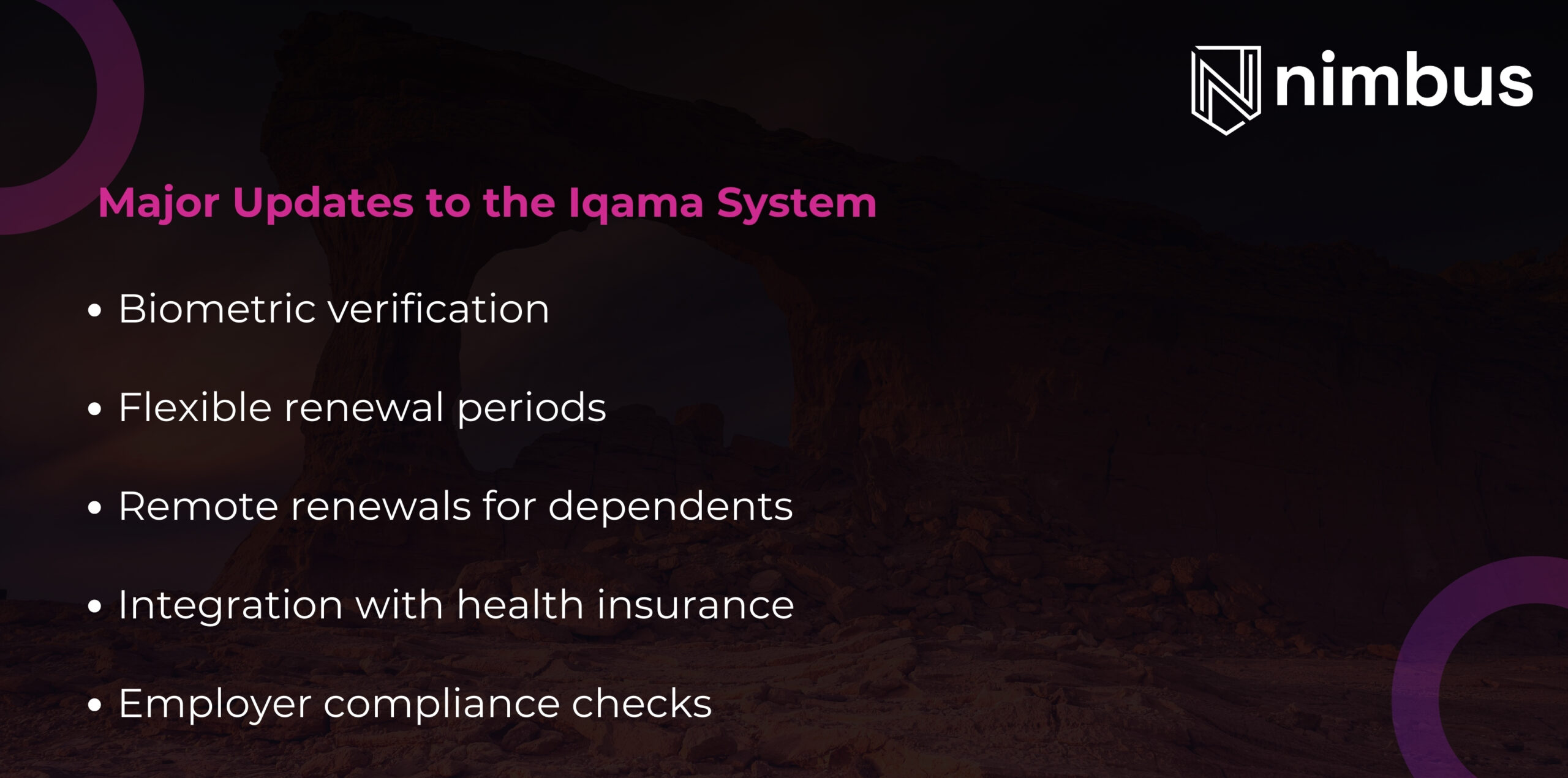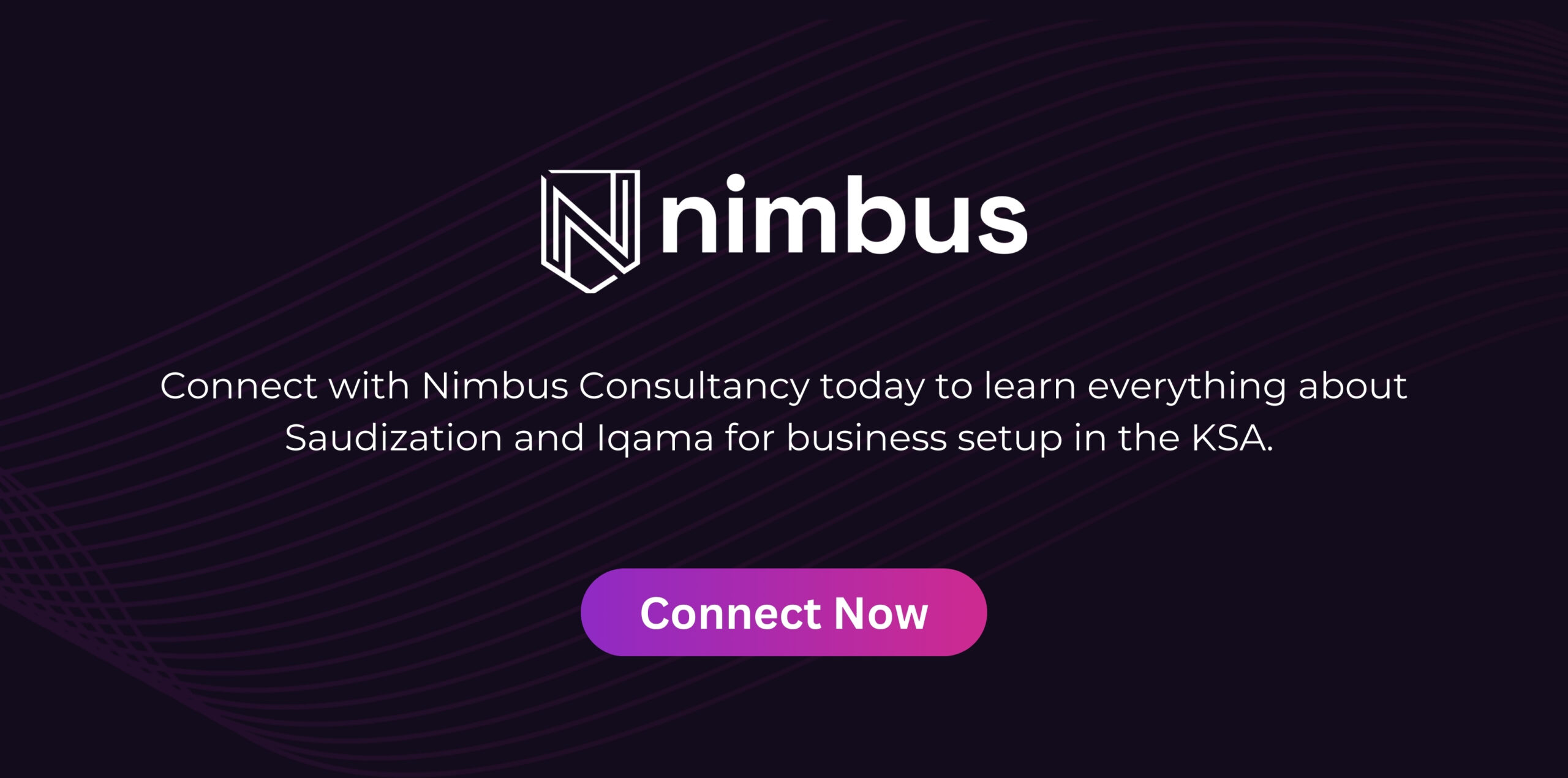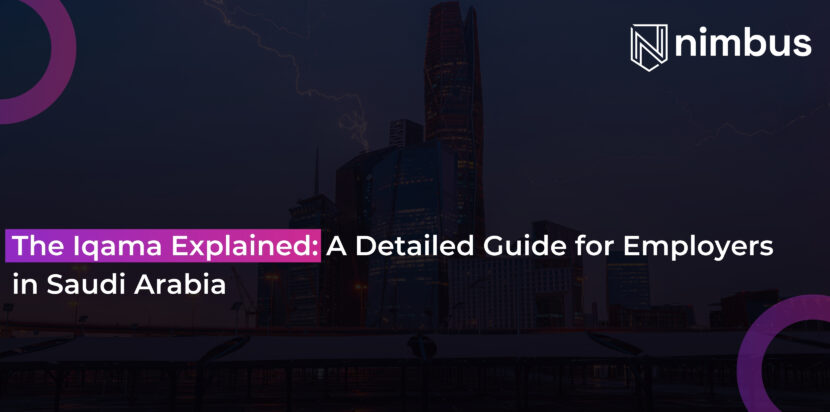Saudi Arabia has established itself as one of the favorable destinations for global talent and investors, offering a stable economy, tax advantages, and a wealth of opportunities under Vision 2030.
For foreign employees and their families, however, living and working in the Kingdom KSA depends on one document: the Iqama. It is Saudi Arabia’s official residence permit, issued by the Ministry of Interior.
The Iqama is the legal gateway for expatriates to reside, work, and access services in Saudi Arabia. For employers and investors aiming for business setup in the KSA, understanding the process of issuing and maintaining Iqamas is a compliance requirement and a vital part of workforce management.
This post gives an overview of what the Iqama is, the benefits it provides, the application and renewal process, costs, and the compliance risks employers must keep in mind.
THE IQAMA – A DETAILED OVERVIEW

– What is the Iqama?
The Iqama is a residency card granted to expatriates who are sponsored by Saudi employers. It confirms legal residency and work authorization in the Kingdom. Without an Iqama, expatriates cannot open a bank account, rent accommodation, or even register for mobile phone services.
For companies, securing an Iqama for their employees is a critical compliance requirement for Saudi labor and immigration laws and ensures that employees are fully integrated into the system.
There are seven main types of Iqamas available:
– Business
– Government Employee
– Professional
– Dependent
– Labor-class
– Privileged Residency
– Domestic Worker
– Benefits of Holding an Iqama
- For expatriates, an Iqama offers a wide range of benefits that make life and work in Saudi Arabia possible. The major benefits include:
- Authorization to work in Saudi under a valid employment contract.
- Access to essential services, including healthcare, banking, and education.
- The ability to sponsor family members to join them in Saudi Arabia.
– Validity and Renewal
The Iqama card is typically valid for up to five years, but the residence permit itself is tied to the employment contract and must be renewed annually. Employers are responsible for renewing Iqamas for their employees.
If the sponsoring company closes down or fails to meet Saudization quotas, the Iqama can become invalid. Late renewals result in fines, and repeated non-compliance may lead to penalties for both the employee and employer.
Renewal processes are now directly linked to health insurance verification through the Council of Cooperative Health Insurance platform, ensuring insurance is valid for the entire permit period.
– Major Updates to the Iqama System
Saudi Arabia has modernized its Iqama system in recent years to increase transparency and efficiency. Employers need to be aware of the following updates:

- Biometric verification: All new applications and renewals require fingerprint and facial scans at designated Jawazat centers.
- Flexible renewal periods: Employers can now renew for 3, 6, 9, or 12 months, offering flexibility in workforce planning.
- Remote renewals for dependents: Applications for dependents can be done through Absher or Muqeem, even if the family members are outside Saudi Arabia.
- Integration with health insurance: Renewals are automatically tied to health insurance coverage, reducing paperwork.
- Employer compliance checks: Renewals can be withheld if employers fail to register staff with GOSI, maintain professional classifications in regulated industries, or meet Saudization requirements.
– The Process of Obtaining an Iqama
Employers play a central role in obtaining Iqamas for their employees. The process involves several stages.
- Company registration: The employer must be registered with the Ministry of Labor and Social Development before hiring foreign workers.
- Visa approval from MISA: For business owners and investors, approval must be secured from the Ministry of Investment. For employees, employers obtain block visas.
- Work visa issuance: Once approvals are in place, the visa is issued by the Saudi embassy in the employee’s home country.
- Arrival and medical check: Upon entry, employees must complete a medical exam at an approved center.
- Issuance of Iqama: After submitting documentation and biometrics, the Iqama is issued. This step can be completed within a day.
- Registration on e-government platforms: Platforms such as Absher and Nafath enable residents to access essential government and financial services.
– Sponsoring Family Members
Once an Iqama is secured, employees can sponsor immediate family members. Applications are made at the local Passport Office and require documentation such as marriage and birth certificates. Dependents also need their own Iqamas, and monthly dependent fees apply.
Costs of the Iqama
Employers must budget for the costs associated with Iqamas, which include:
- Iqama issuance and renewal fee: SAR 650 per year.
- Work permit (Maktab Amal) fee: SAR 800 per month.
- Dependent fee: SAR 400 per month for each dependent.
Renewal fees that range from SAR 163 for three months to SAR 650 for a year, excluding work permit and dependent fees.
Employers are generally responsible for these costs, including dependent fees and repatriation costs if an employment contract ends.
– Risks
While the Iqama system is structured, there are compliance challenges that employers must manage carefully.
- Documentation complexity: The process requires multiple documents, from medical certificates to academic qualifications, which can cause delays.
- Non-compliance penalties: Missing renewal deadlines, failing to register employees properly, or not updating classifications can lead to fines, deportation, or restrictions on company operations.
- Loss or theft of Iqama: If an Iqama is lost, it must be reported immediately to the police, and a fine may apply before a replacement is issued.

The Iqama is the cornerstone of expatriate life in Saudi Arabia. For employees, it enables access to essential services and legal employment. For employers and investors preparing for business incorporation in the KSA, it represents compliance with Saudi labor and immigration law.
With recent reforms introducing biometric verification, flexible renewals, and health insurance integration, the system is becoming more streamlined but also more stringent. Employers must remain proactive in managing renewals, maintaining compliance with Saudization quotas, and budgeting for associated costs.


